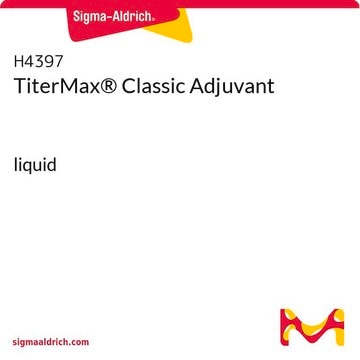GF09816307
Bismuth
foil, light tested, 50x50mm, thickness 0.02mm, permanent polyester support, 99.97%
Synonym(s):
Bismuth, BI000150
Sign Into View Organizational & Contract Pricing
All Photos(2)
About This Item
Empirical Formula (Hill Notation):
Bi
CAS Number:
Molecular Weight:
208.98
MDL number:
UNSPSC Code:
12141706
PubChem Substance ID:
NACRES:
NA.23
Recommended Products
vapor pressure
<0.1 mmHg ( 20 °C)
Assay
≥99.97%
form
foil
manufacturer/tradename
Goodfellow 098-163-07
resistivity
129 μΩ-cm, 20°C
bp
1560 °C (lit.)
mp
271 °C (lit.)
density
9.8 g/mL at 25 °C (lit.)
SMILES string
[Bi]
InChI
1S/Bi
InChI key
JCXGWMGPZLAOME-UHFFFAOYSA-N
Looking for similar products? Visit Product Comparison Guide
General description
For updated SDS information please visit www.goodfellow.com.
Legal Information
Product of Goodfellow
Choose from one of the most recent versions:
Certificates of Analysis (COA)
Lot/Batch Number
Sorry, we don't have COAs for this product available online at this time.
If you need assistance, please contact Customer Support.
Already Own This Product?
Find documentation for the products that you have recently purchased in the Document Library.
Hong Lu et al.
European journal of gastroenterology & hepatology, 25(10), 1134-1140 (2013-06-20)
Antimicrobial resistance has continued to undermine many popular anti-Helicobacter pylori therapies. Antibiotic resistance to commonly used anti-H. pylori drugs in China has increased markedly, making China an ideal site to identify regimens that remain effective despite widespread antimicrobial resistance. Bismuth
Bismuth in medicine.
Hongzhe Sun et al.
Metal ions in biological systems, 41, 333-378 (2004-06-23)
Syntheses of biodegradable and biocompatible polymers by means of bismuth catalysts.
Hans R Kricheldorf
Chemical reviews, 109(11), 5579-5594 (2009-09-26)
Jorge A R Salvador et al.
Molecules (Basel, Switzerland), 16(4), 2884-2913 (2011-04-06)
Steroid and terpene chemistry still have a great impact on medicinal chemistry. Therefore, the development of new reactions or "greener" processes in this field is a contemporaneous issue. In this review, the use of bismuth(III) salts, as "ecofriendly" reagents/catalysts, on
Jorge A R Salvador et al.
Future medicinal chemistry, 4(11), 1495-1523 (2012-08-04)
In recent years, the chemical potential of bismuth and bismuth compounds has been actively exploited. Bismuth salts are known for their low toxicity, making them potential valuable reagents for large-scale synthesis, which becomes more obvious when dealing with products such
Our team of scientists has experience in all areas of research including Life Science, Material Science, Chemical Synthesis, Chromatography, Analytical and many others.
Contact Technical Service






